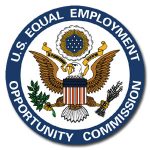Walking the workplace proselytizing tightrope
by David L. Johnson “Have a blessed day.” “I’m praying for you.” “Are you a believer?” “Would you be interested in attending church with me?” Comments and questions like those may be common in your workplace. On the one hand, Title VII of the Civil Rights Act of 1964 bars employers from discriminating against employees […]










